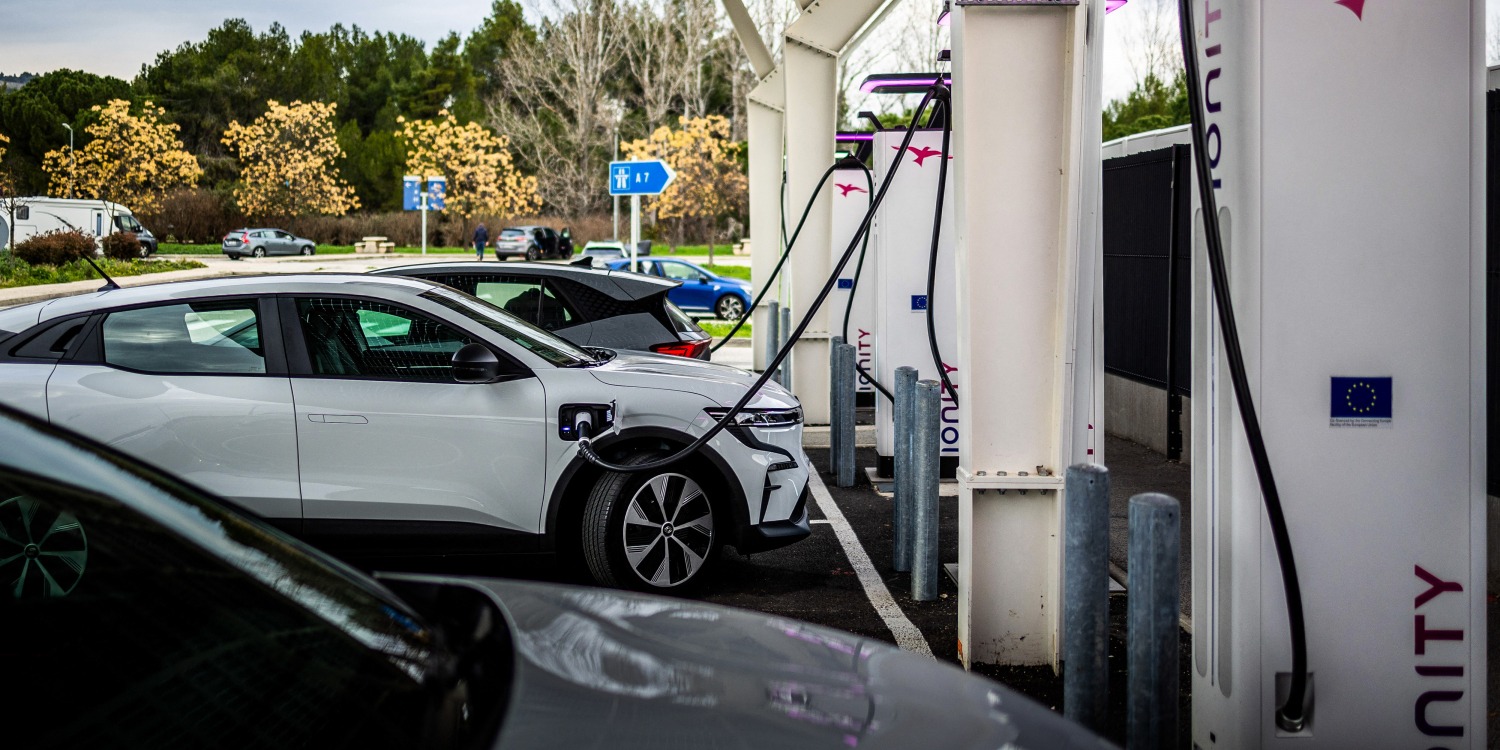Aurélien Fleurot / Photo credits: Jc Milhet / Hans Lucas / Hans Lucas via AFP 10:39 a.m., February 13, 2024
With more than 50,000 orders that will be honored, the “social leasing” system has been a victim of its success. Which also demonstrates that the number one argument for switching to electric cars remains the price. But the growth in the 100% electric market share in Europe risks slowing down.
The success of "social leasing", which allows the less well-off to access an electric car for 100 euros per month, demonstrates that the number 1 argument for convincing motorists to switch to electric remains the price. If certain manufacturers begin to offer more affordable models, such as Citroën's e-C3, the growth in the 100% electric market share in Europe risks slowing down.
>> Find Europe 1 Matin in replay and podcast here
Fuel savings but a more expensive vehicle to purchase
There is the autonomy, the number of kilometers that I could do before recharging my car, the number of terminals available, the possibility of installing one at home... But it is the price that makes the difference customers.
Saving fuel is a good argument except that when purchasing an electric car still costs on average 10 to 15,000 euros more than its thermal equivalent. A gap that can be reduced thanks to government aid. However, these bonuses are decreasing in France or disappearing in Germany.
>> READ ALSO
- Electric vehicles: the ecological bonus drops by 1,000 euros for the wealthiest households
Is the electric vehicle dependent on state aid?
According to an annual study by Deloitte, motorists do not necessarily want to abandon thermal vehicles. “In France, the taste for thermal energy remains relatively stable, it is no longer decreasing. What we are seeing in certain mature countries, notably Germany or the United States, is an increase in purchasing intentions for thermal thermal vehicle", explains Guillaume Crunelle, in charge of the automotive sector.
“There are real questions about the dependence of electric vehicles on state aid, on various subsidies, which allow them to be competitive on the market,” he adds. In Germany, according to forecasts from the Automobile Industry Union, electric sales could fall by 14% in one year.

